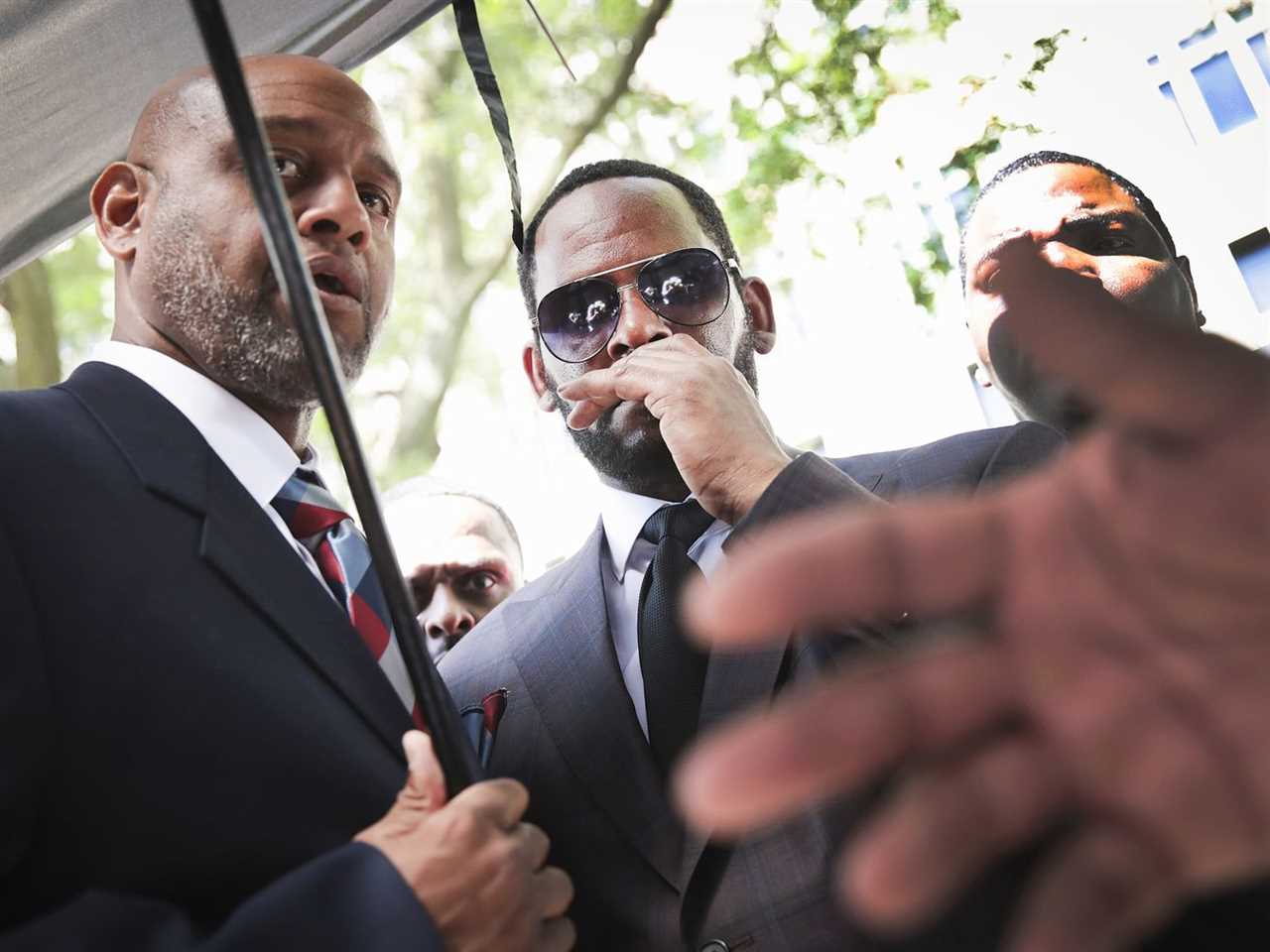
It took decades and dozens of allegations for the singer’s survivors to be heard. Activists aren’t sure the verdict is a turning point.
For the dozens of survivors who came forward, the R. Kelly verdict was three decades in the making: After a six-week trial, the R&B singer was found guilty on Monday on nine counts of sex trafficking and racketeering. The 54-year-old musician, long accused of disturbing allegations of sexual abuse and harassment, was being held accountable.
“Thank God they got it right this time,” Stephanie Edwards, who tried for 20 years to convince the world that R. Kelly raped her niece, told The Cut.
It took the jury just nine hours to deliberate after prosecutors, with the help of 45 witnesses, untangled a web of abuse that targeted Black women and girls as young as 13 and teenage boys. The harrowing stories of these survivors — and their bravery to share them — helped lead to the R&B superstar’s conviction after years of evasion.
One woman testified that R. Kelly gave her herpes when she was 16 and he was 42. Another shared how Kelly locked her in a room for days without food to eventually wake up having been drugged and raped. Others on the stand told of Kelly forcing them to get abortions, demanding they have sex with other women who were locked up in his studio, coercing them to have sex and perform sexual acts under the threat of a gun, and obsessively recording much of the abuse on video.
The verdict, many say, is evidence that a cultural tide has turned after years of activism. Since the Me Too movement took off in 2017, Kelly’s reckoning has been a major milestone in the music industry and the first high-profile case in which the majority of the victims were Black women and girls. These survivors had to fight especially hard to have their stories be heard and taken seriously.
Allegations go back as far as 1996, when a young woman filed a lawsuit against Kelly, saying she was underage when he initiated sex with her; in 2001, another young woman did the same. A year later, police indicted Kelly on 21 counts of child pornography after an anonymous source sent a sex tape to the Chicago Police Department. When the case went to trial in 2008, jurors were not convinced by the video evidence that showed Kelly sexually abusing what appeared to be a young Black girl, and Kelly was acquitted of the child pornography charges.
In the years since, activists — from Me Too founder Tarana Burke to the women behind the #MuteRKelly social media campaign — have worked hard to cultivate a climate that brings attention to Black survivors. The explosive Lifetime documentary series Surviving R. Kelly further brought allegations against the singer to light.
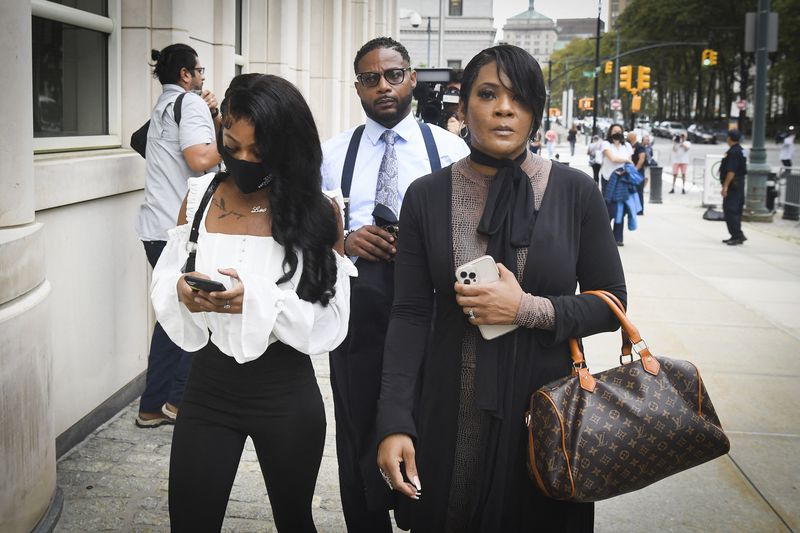
Angela Weiss/AFP via Getty Images
Only time will tell if Kelly’s conviction will be an outlier, or if it means that Black women and girls are truly being recognized and taken seriously in discussions about sexual abuse and assault. Much like Harvey Weinstein, who in February 2020 was sentenced to 23 years in prison for third-degree rape and first-degree criminal sexual acts, Kelly’s list of abuses is egregious, excessive, and damning. But there are signs that Me Too fatigue has set in, with the public less interested in following abuse cases, and Kelly’s music still remains popular on streaming platforms. Some who have long followed the allegations see the verdict as a step forward for the country’s most vulnerable survivors — but they note that there’s still a long way to go to change the reality that one in four Black girls will be sexually abused before age 18, according to the American Psychological Association (APA).
“It’s remarkable the level at which one has to prey upon Black girls and women for there to be this kind of recognition,” Treva Lindsey, a professor of women’s, gender, and sexuality studies at Ohio State University, told Vox. “It took three decades of allegations, a docuseries, a #MuteRKelly campaign, and more to even produce the moment that we’re in. But the systems that enabled Kelly are still intact.”
From child porn allegations to Surviving R. Kelly: What led to a conviction
The world where R. Kelly was able to evade authorities for years looks a bit different from the world in which he was finally convicted this week.
In 1994, Kelly illegally married R&B singer Aaliyah when she was just 15 years old. When news of their relationship broke, it was mostly discussed as a misguided choice made by a mentor and protégé “in love,” not one of abuser and victim. In the recent trial, however, Aaliyah was noted as Jane Doe No. 1, with a witness testifying that he saw Kelly having sex with Aaliyah when she was 13 or 14.
What made more headlines than the illegal marriage, though, was what many called Kelly’s “sex tape.” In June 2002, the self-titled Pied Piper was charged with 21 counts of making child pornography that featured oral sex, intercourse, and urination. The video in question had been widely copied and sold, earning a place in the cultural discourse with comedians joking about golden showers and Kelly’s kinks. It took six years for the case to make it to trial, where Kelly was found not guilty on all counts. Jurors concluded that they could not determine that the girl on the 27-minute tape was a minor. While the trial focused on this one sex tape, there were several allegations against Kelly by this time.
Between “the tape” and his first trial, Kelly only grew in popularity with an NAACP Image Award nomination in 2004 and the release of his cult classic hip hopera, “Trapped in the Closet,” the following year. When Kelly was exonerated in 2008, he left the courthouse with his hand on his heart as he walked by fans with the “flicker of a smile” on his face, the New York Times wrote.
Back then, the 14 witnesses at Kelly’s trial weren’t believed, or at least weren’t believed enough by the jurors (nine men and three women) to convict him. Kelly’s defense team called the witnesses liars and extortionists and even compared one of them to the devil. Kelly’s lawyers made their entire defense about gold-digging women, since one of the witnesses admitting to stealing a $20,000 Rolex from the musician. The jury explained that the lack of testimony from the victim created “grayness” in the case.
During Kelly’s 2021 trial, a defense team tried once again to paint women who testified against Kelly as promiscuous and desperate for fame, but the effort didn’t stick — more survivors came forward, and there had been a years-long movement of supporters behind the women this time around that had worked to uncover Kelly’s alleged intricate criminal enterprise and shine a light on a culture that enables predators.
The #MuteRKelly campaign, founded in 2017, brought greater attention to the longstanding allegations against Kelly, urging individuals, radio stations, and music venues to stop playing his music or hosting his live performances. The movement’s founders, Kenyette Barnes and Oronike Odeleye, two Black women, believed it was time for Black communities to take a stand against R. Kelly by not supporting his music career — less streaming and album sales meant less money for the lawyers and networks that prolonged the abuse.
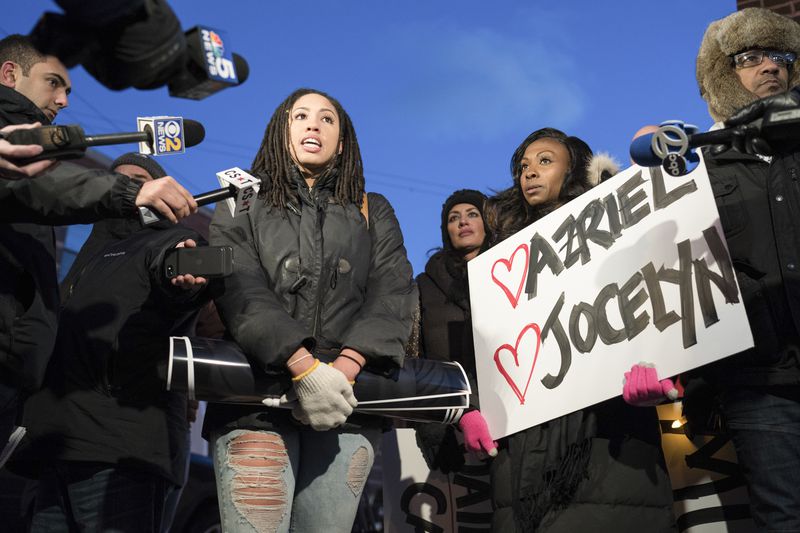
Max Herman/NurPhoto via Getty Images
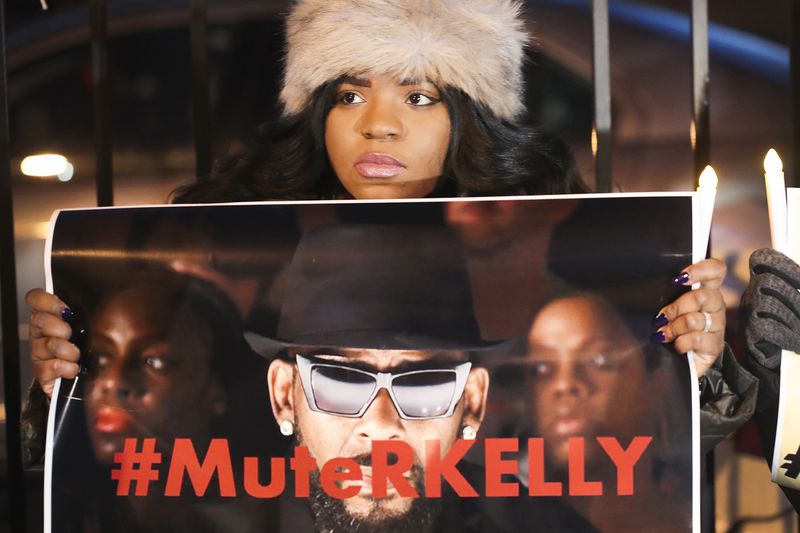
Scott Olson/Getty Images
That same year, music writer Jim DeRogatis, who originally broke the story of allegations against Kelly and had been chronicling the allegations against Kelly since 2000, published a BuzzFeed feature detailing information about a “cult” of young women that Kelly maintained. Just four months later, decades of sexual assault and harassment allegations against Harvey Weinstein surfaced, launching the Me Too movement to heights activists never believed would happen. For a moment, it seemed as though Kelly’s victims could ride this wave — people tried to vocalize the decades of horror the R&B singer wrought — but their stories weren’t amplified in the way others survivors’ were.
It took another push for Kelly’s victims to get some attention: The six-part Lifetime docuseries Surviving R. Kelly, directed by dream hampton and released in early 2019, featured several accusers describing their experiences with Kelly and seemed to finally break the weight of silence that had settled in. In the six hours of television testimony, survivors, allies, and advocates laid out the most comprehensive look yet at Kelly’s abuse, making it difficult for people to look away. After the series aired, Kelly was dropped by his record company and later charged with 10 counts of aggravated criminal sexual abuse and sex trafficking.
“What’s striking is that the trial revealed an even broader scope of victimization that he perpetrated than the docuseries alluded to,” Candice Norcott, a professor of psychiatry at the University of Chicago who was a featured expert in the Lifetime docuseries, told Vox. “There was still more that was revealed, like the scope of gender identities that he targeted.”
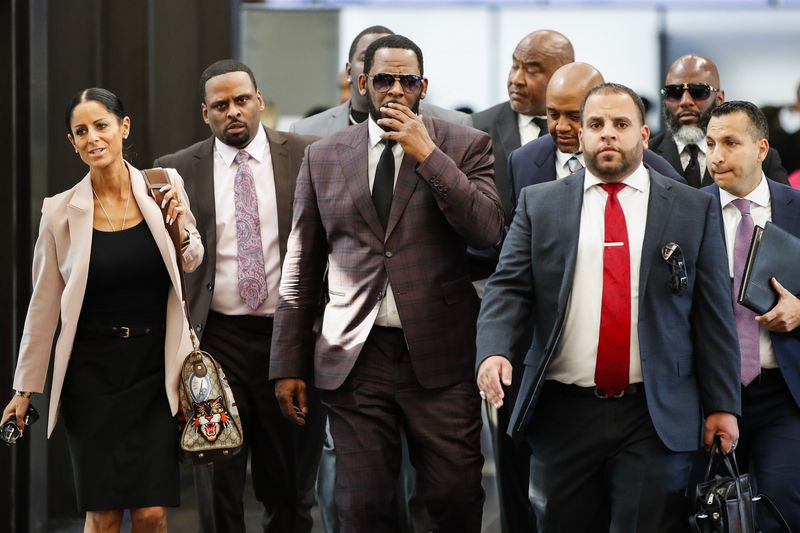
Kamil Krzaczynski/AFP via Getty Images
Monday’s verdict, after decades of accusations and activism, shows that change is happening, albeit very slowly. One of the biggest critiques at the height of Me Too — which was started by Burke, a Black activist, around 2007 before surging in the wake of the Weinstein story — was that it left out marginalized women, particularly Black women. It only received widespread recognition after actress Alyssa Milano tweeted out the phrase 10 years later and captured stories of abuse that women in Hollywood experienced. Most of the stories that garnered attention centered on white women; meanwhile, more than 20 percent of Black women are raped during their lives, according to the APA, a higher percentage than women overall, and for every Black woman who reports rape, at least 15 Black women do not.
The unique discrimination that Black women face as a result of misogynoir — the combination of anti-Black racism and misogyny — makes it harder for Black women to report campus sexual assaults, for example, even at majority-Black institutions. Activists have helped bring these realities to the fore in recent years, and Americans have become more receptive to understanding systemic oppression. The fact that jurors at Kelly’s 2021 trial believed the Black women who testified against him, especially given that the women are not famous or wealthy, is significant.
Still, Lindsey pointed out, survivors can’t help but feel a loss for not being believed for so long. “The verdict finally offers a clear indictment, not only of R. Kelly, of course, but of all the enablers and systems that had to be in place to allow that to proceed,” Lindsey said. “But for Black women and girls, and especially those who are the survivors of sexual violence, it’s not comforting to know that it took three decades of allegations for people to say, ‘Perhaps this was terrible.’”
Why the greater impact of Kelly’s guilty verdict is tough to predict
It is yet to be seen whether this trial and verdict will encourage society to listen to and believe Black women and girls going forward.
There are multiple reasons Kelly’s case may be an outlier. For one, Kelly’s behavior was monstrous in terms of its flagrancy, frequency, and longevity. That isn’t the norm for sexual violence for the average victim, Lindsey said. Kelly was a rich and powerful man, with a network of enablers; he was known to scout teenage girls and commit his abuses in plain sight. His crimes also included some especially foul details — one woman testified that Kelly forced her to smear feces on her face and put them in her mouth. For another, it’s well-documented that Black women and girls are less likely to be seen as victims, or to be believed and supported when they report abuse.
In fact, there are a number of Black women who have accused high-profile men of sexual abuse whose accounts still deserve serious attention. Jennifer Hough — the woman whom Kenneth Petty, Nicki Minaj’s husband, was convicted of attempting to rape — has said that Petty, Minaj, and their fans have pressured her to recant her story of the sexual assault. The 20 women who have accused hip-hop mogul Russell Simmons of sexual misconduct face an uphill battle as Simmons denies the allegations with the hashtag #NotMe. And those stories have made the news because the accused men are famous — but what about those who’ve faced sexual violence at the hands of non-famous men?
“These instances [with Petty and Simmons] tell us we aren’t necessarily somewhere new with how we tackle sexual violence against Black women and girls,” said Lindsey. “There’s still a way that we are willing to villainize and demonize them for their behavior without actually reckoning with the pervasiveness of sexual violence.”
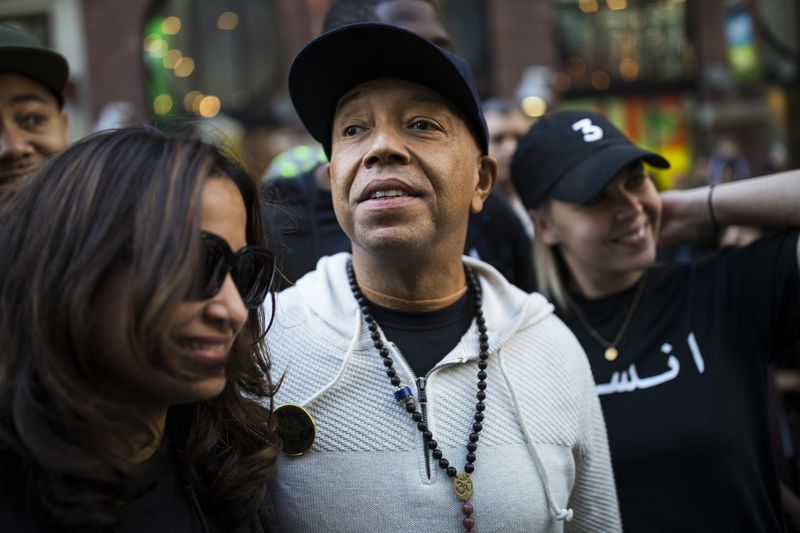
Robert Nickelsberg/Getty Images
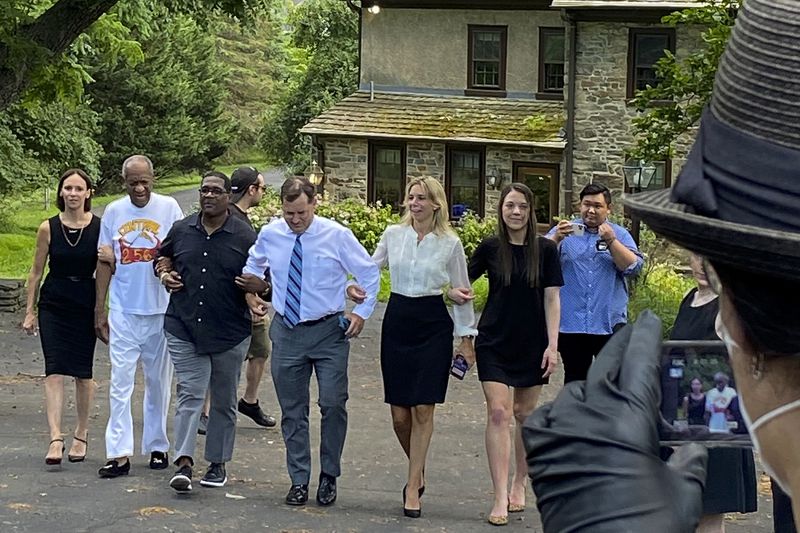
Michael Abbott/Getty Images
There are also other factors that signal a larger, overall Me Too fatigue. Though some dedicated viewers tuned in to Kelly’s 2021 trial daily, posting recaps in Facebook groups or devoting entire YouTube series to analyzing the case, social media attention to the six-week trial was markedly low. When the Weinstein allegations first came out in October 2017, the hashtag #MeToo was used 200,000 times, and 80,000 people were talking about the movement on Facebook. By the time the jury reached a verdict in the R. Kelly trial, #MeToo was hardly being used; meanwhile, one of the top R. Kelly hashtags was #FreeRKelly.
“I had to kind of search it out a little to find information from the trial,” Lindsey said. “I know there were news sites keeping a daily record, and Black news outlets were pretty good about regular updates, but I did not see that same kind of investment that we saw with the Harvey Weinstein case, in terms of public lure. And this is perhaps one of the most intricate, complex, and just damning cases of serial sexual predation we’ve probably seen in quite some time, but you wouldn’t know that from the news.”
Norcott also noted having to dig for news pertaining to Kelly’s trial. “There was the context of [Instagrammer Gabby Petito’s] story emerging and getting so much attention while this trial was underway. It’s important to pay attention to how and why that happened.”
As Spencer Kornhaber noted in the Atlantic, it’s also important to understand that Kelly was convicted not of rape or sexual assault, but of sex trafficking and racketeering, a charge notoriously linked to the mafia. This strategy was a workaround for sexual abuse allegations that had reached the statute of limitations, with the prosecution opting instead to show how Kelly constructed a grand scheme of abuse that involved dozens of enablers. That prosecutors chose this approach also highlights how hard it is to get a sexual assault conviction against a powerful man.
Then there is Kelly’s popularity as a musician. Though the debate of separating the art from the artist has persisted for ages, there will always be people who are not concerned about consuming the art of an abuser. Just this month, Drake released an album featuring a song credit from Kelly. After Surviving R. Kelly aired, streams of Kelly’s music shot up on Spotify; he currently has 4.9 million monthly listeners. By this point, people have already made up their minds as to whether they will continue to play “Ignition (remix)” or stop listening to it altogether, and Kelly’s guilty verdict is unlikely to affect their decision.
“There’s a way that a lot of us are grappling with our role as enablers, and as part of rape culture, that also keeps us much more timid in our responses and our investment in the verdict,” Lindsey said.
Ultimately, activists want the long-overdue R. Kelly verdict to underscore how challenging it is for survivors to tell their stories — and that’s why it’s important that they’re heard, especially Black women and children, who are often some of the most vulnerable. People may be exhausted by Me Too, but the work to dismantle a culture that enables abuse is nowhere near done. “What I hope comes out of this is more messages about accountability and fewer messages about doubt, shame, and the persecution of survivors who decide to come forward,” Norcott said.
----------------------------------------
By: Fabiola Cineas
Title: R. Kelly was convicted. Are we finally listening to Black women?
Sourced From: www.vox.com/22698489/r-kelly-conviction-black-women-survivors
Published Date: Wed, 29 Sep 2021 23:47:00 +0000






